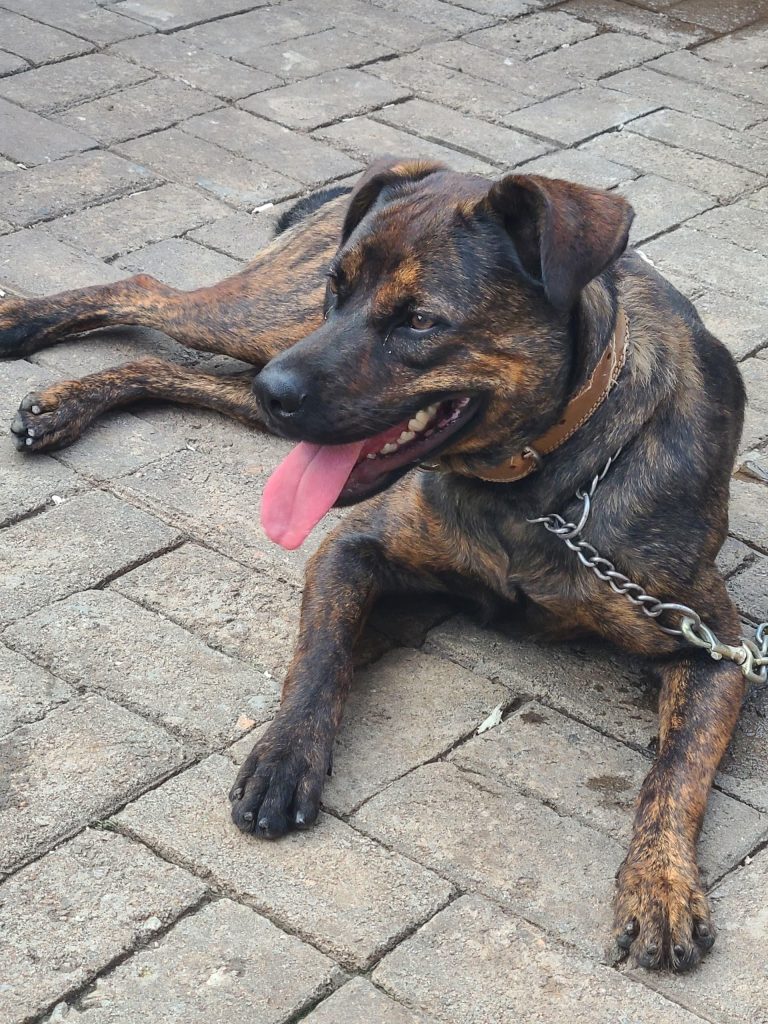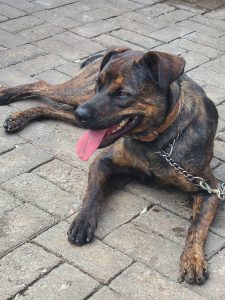
This is an extract from an award-winning article authored by Dr Dickson Tayebwa with support from our veterinarian. The Journal of Veterinary Behaviour awarded it the 2024 Early Career Award.
Introduction
Free-roaming dogs (FRDs) cause 86% of the 14,865 dog bites recorded annually and 20 rabies-related deaths in Uganda. Unfortunately, there is a lack of data on the circumstances surrounding the bites. This undermines the development of effective mitigation measures. To address this gap, a group of researchers actively tracked reports involving aggressive dogs in the Kampala metropolitan area in Central Uganda. Their approach included tracing the responsible dogs to rule out rabies and conducting interviews with victims and community members.
They investigated seven incidents, including two rampages, two instances of aggressive behavior in dogs, two cases of livestock predation, and one incident where a dog strayed into a residence. In three of the seven incidents, the dogs managed to escape due to factors such as nighttime cover, easy access to hideouts in slums, and limited community support.
Findings
In total, 53 bite cases were recorded, affecting 29 humans—predominantly children (72.4 %) and 24 animals, including cattle, sheep, goats, pigs, pet dogs, and poultry. Notably, the two rampages accounted for 47 bite cases (88.7 %). The highest dog-to-bite incident ratio of 1:37 occurred in Matugga, Wakiso District. Despite 96.6 % of the human victims being eligible for rabies post-exposure prophylaxis (PEP) due to sustaining deep wounds. 58.6% sought treatment from traditional healers, 13.8 % self-medicated with local herbs, and 3.4% did not take any intervention.
The community’s response to the rampages was to kill the responsible dogs. However, in one instance where the dog could not be traced, the community resorted to indiscriminately killing roaming dogs in the area. They used sticks and stones in a mob.
This study underscores the significant threat that FRDs pose in the transmission of rabies. To achieve the global target of eliminating dog-mediated rabies by 2030, it is essential to enhance rabies vaccination coverage for dogs to meet the WHO-recommended threshold of 70 %. Additionally, mass education efforts should be prioritized at both the community level and in schools. This should be particularly in areas where rabies is endemic and dogs roam freely.
What this means for you as a pet owner.
As pet owner, you play a vital role in preventing the dangers posed by free-roaming dogs (FRDs) in your community. This study powerfully reminds us that when pet owners act irresponsibly, they endanger not only their own dogs but also people, livestock, and other animals in the community. Here’s what you can do:
- Keep your dog safely confined
House your dog securely and prevent it from roaming freely. Free-roaming dogs often cause aggressive incidents, get hit by vehicles, or spark conflict within the community. When your dog roams, it also faces a greater risk of injury, disease or death at the hands of angry mobs.
- Vaccinate against rabies
Rabies is a deadly but preventable disease. Vaccinating your dog protects you, your family, and the wider community. Unvaccinated, roaming dogs continue to cause rabies-related deaths in Uganda. Ensure your pet receives its annual rabies shot and keep the certificate safe.
- Be a responsible pet owner
Practice and promote responsible pet ownership. This includes regular health checks, training, feeding, and ensuring your dog doesn’t pose a threat to people or animals. A well-managed dog is less likely to provoke fear or aggression from the community.
- Educate Others in Your Community
Take part in or support community sensitization campaigns. Help spread accurate information about rabies prevention, bite response, and how to treat dogs humanely. Empowering your neighbors with knowledge helps build a safer environment for both people and animals.
- Involve Schools and Children
Because dog bites affect children the most, we must engage schools in rabies education and teach safe ways to interact with dogs. Talk to your children about how to behave around unfamiliar dogs and ensure they know to report bites immediately.
By taking these steps, you not only protect your pet, you contribute to a safer, more informed, and compassionate community. Responsible pet ownership is not just personal; it’s a public duty. Let’s work together to end dog-mediated rabies by 2030 and create a world where pets and people coexist safely.
Reference
Exploration of circumstances surrounding bites from potentially rabid dogs on rampage, and the coping strategies of victims and communities in Central Uganda. https://www.sciencedirect.com/science/article/pii/S1558787824000947

